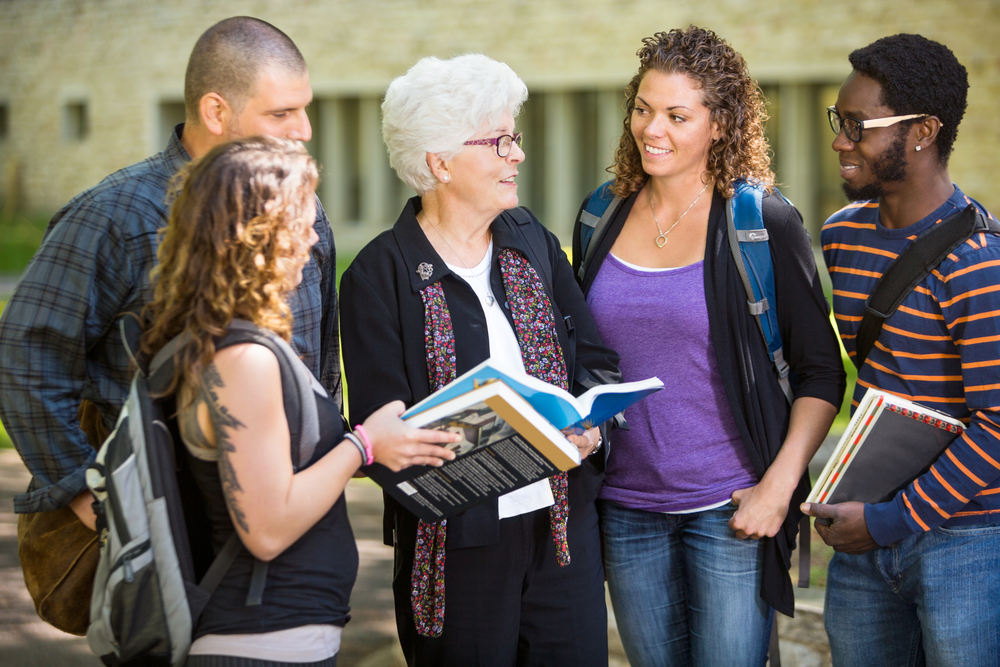Share This
Related Posts
Tags
College Cohabitation
By Cutright Elizabeth on Aug 3, 2017 in News
As healthcare technology continues to evolve, universities across the country are bringing senior housing on campus in order to create new models for healthy aging. Hosting seniors on site allows students and faculty to collect healthcare data on residents and use th at information to develop proactive solutions to senior care. Highly popular, these university-affiliated retirement communities are a win-win for residents and academia.
at information to develop proactive solutions to senior care. Highly popular, these university-affiliated retirement communities are a win-win for residents and academia.
“There are opportunities in terms of an intergenerational setting as well as the financial health for the retirement community and the college,” Paula Panchuck, vice president and dean of Lasell Village, told Senior Housing News. “There are some beautiful synergies that bond us even more closely.”
Symbiotic Studies
Across the country, these programs combine continuing education with healthcare and gerontology coursework resulting in the ability to promote research and forge community connections. In many cases, residents are encouraged to participate in classes and other campus activities, while students gain invaluable access to the day-to-day routines of the aging population.
Situated within the campus of Lasell College in Newton, Mass, Lasell Village mimics small town living with buildings, including a clock-towered Town Hall, stretching out over 13-acres. By bringing senior housing on campus, Lasell Village promotes retirement living comprised not just of continued care for aging adults, but of a “community with the cultural, social and recreational opportunities of lifelong learning.”
Other senior-college partnerships not only welcome residents to explore university offerings, they also seize the opportunity to develop a curriculum focused on aging and senior care. Recognized as one of the Best Nursing Homes in 2016, Holy Cross Village at Notre Dame hosts a gerontology consortium and a four-year school with classes available to students and residents.
“It’s a great symbiotic relationship because the students can work with our residents and the residents work with them,” explains Susan Griffin, marketing director for Notre Dame.
An Ounce of Prevention
As UC San Diego prepares to develop its own on-campus senior housing, the university anticipates leading the charge for a new model of senior healthcare. By combining the latest in healthcare technology with an academic focus on aging, UC San Diego is position itself on the forefront of healthcare research.
“A university such as UC San Diego, which combines expertise in healthcare with research and know how, can be immensely helpful to the senior living industry,” Dr. Dilip Jeste, M.D., recently told Senior Housing News. “Universities with academic health centers have a vital role to play in the evolving healthcare system.”
Jeste points to the value of prevention and the ability for healthcare technology to expand the type of care seniors can receive outside of a hospital or assisted living setting as key to this evolving framework for senior healthcare. As senior housing communities become “primary sites for healthcare,” Jeste believes in the future most seniors will receive medical attention and continued care in the comfort of their own home.
“The population of older adults is increasing, but the number of geriatric trained health care providers is not only stagnant, but in some cases (e.g., geriatric medicine and geriatric psychiatry) it is actually going down,” says Jeste.
“The question is: how can we care for the growing number of older people who have greater healthcare needs when there are not enough clinicians to take care of them? We have to come up with new models.”
